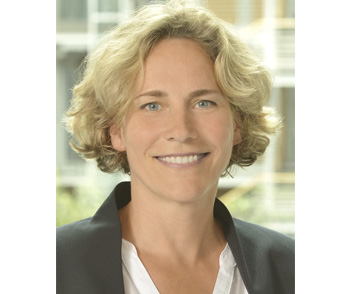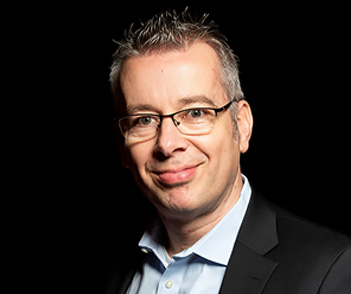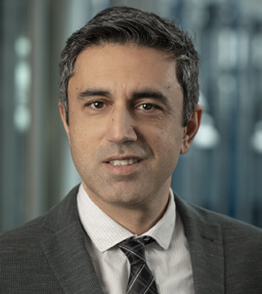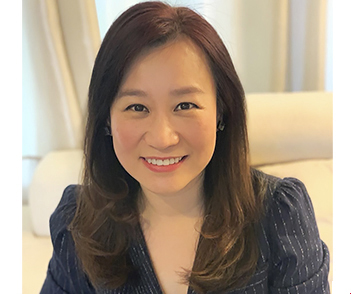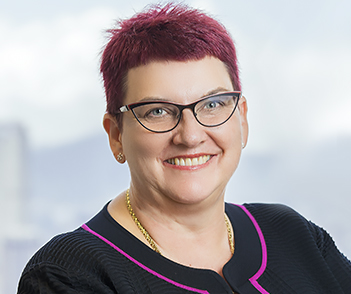EVIDENCE BASED INSIGHT
Medical Education Challenges in the Globalization Era
September 21, 2020 • 7 min read
BERIT GOETHEL-PAAL, PhD • RAINER HIMMELE, MD, MSHM• FATIH KIRCELLI, MD • HUAYING SU, PharmD • VANESSA WILSON, RN, CNN, MM
Medical education is a crucial area of activity for Fresenius Medical Care. The Global Medical Office, working in partnership with regional education teams, is expanding and aligning a broad range of training programs for nephrologists, nurses, and other renal healthcare professionals. Increased translation capabilities, shared platforms, online courses, and locally customizable materials are strengthening the overall effectiveness of these programs while accommodating the specific needs of diverse communities around the world.
Fresenius Medical Care is the world’s largest provider of renal replacement therapy services and dialysis equipment manufacturing. Thus, the company is committed to expanding the availability of medical information and education to healthcare providers around the globe. Through collaboration with diverse scientific thought leaders, Fresenius Medical Care aims to inform the internal nephrology community about clinical and therapeutic governance and the external community about product-related therapy concepts.
In conjunction with the Global Medical Office, the regional medical education teams develop programs based on corporate governance guidelines, local regulations, applicable marketspecific practices, customs, disclosures, and best clinical practices in care delivery. State-of-the-art scientific content adheres to principles of ethicalness, transparency, and accountable engagement. In addition, education programs are delivered based on needs, objectives, and timeliness.1
FUTURE OF EDUCATION IN THE GLOBAL ENVIRONMENT
The establishment of the Global Medical Office in 2019 provided a tremendous opportunity for renal education regional alignment and collaboration. Medical communications and education are highlighted in the Clinical and Quality Agenda 2020 as activity pillars across multiple regions. This will facilitate leveraging Fresenius Medical Care global resources and add great value to improving healthcare provider training for better patient-centered care in the value-based healthcare systems (Figure 1).
FIGURE 1 | Both medical education and medical communications are key pillars of activity in the company’s Clinical and Quality Agenda
EUROPE, THE MIDDLE EAST, AND AFRICA
Fresenius Medical Care’s Europe, Middle East, and Africa (EMEA) region is highly diverse, with more than two billion people residing in nearly 120 countries spread over three continents. English, French, German, Russian, and Spanish are widely spoken but represent only five of the 2,000 languages of the region. The linguistic diversity is an important challenge when developing medical education programs. This concept of diversity also applies to different educational systems; social, economic, and cultural conditions; and variations in disease patterns, distribution of nephrologists, and approaches to supporting social responsibility.2
The EMEA medical education team serves dual platforms to address the interests of internal and external healthcare professionals.
Serving All Healthcare Providers
To address the needs of Fresenius Medical Care affiliated and non-affiliated healthcare providers in the region, the EMEA Medical Information and Education (MIE) team is introducing the Advanced Renal Education Program (AREP) in 2020. AREP will allow healthcare providers access to recent advances in end-stage kidney disease (ESKD) and renal replacement therapy. AREP will also be translated into multiple languages to meet the needs of a diverse group of healthcare providers in multiple countries and cultures. The AREP concept will be adjusted to meet the needs of the nephrology community through regular surveys and feedback driven from field visits. The EMEA MIE team is launching novel, state-of-the art educational activities and technology solutions to increase the value of medical educational platforms and traditional classroom-based seminars.
Serving NephroCare Physicians
NephroCare provides renal care at dialysis centers in EMEA, Latin America, and Asia Pacific. In the EMEA region alone, around 69,000 ESKD patients are treated by approximately 2,100 employed physicians in 780 clinics.
Continuing medical education (CME) is essential for a physician to maintain clinical competencies and gain new knowledge as well as to maintain licensure and credentials. In 2016, the EMEA Clinical and Therapeutical Governance team initiated the medical education program designed to communicate the latest NephroCare standards of care and provide updates on international best practices guidelines for improving clinical outcomes and patient care. Any information presented to NephroCare physicians is scientific in nature and does not include Fresenius Medical Care product information.
NephroCare Academy is the educational platform for NephroCare staff, offering a large variety of e-learning topics related to hemodialysis treatment, complications, comorbidities, patient safety, and chronic kidney disease (CKD) management.
A key focus of the EMEA medical education program is to expand the number of e-learning modules and video-based segments that are accredited by the European Accreditation Council for Continuing Medical Education (EACCME) institution of the European Union of Medical Specialists (UEMS) and endorsed by the European Renal Association-European Dialysis and Transplant Association.
In addition, the 2018 and 2019 annual EMEA country medical director meetings received UEMS accreditation. By offering accredited medical training, Fresenius Medical Care supports physicians in fulfilling CME credit requirements.
In late 2020, educational materials will be published on the global AREP website to increase reachability.
Medical Information Inquiry System
Channels designed to address medical inquiries in a timely manner with the most relevant and up-to-date medical information are crucial. Thus, a top regional priority is to develop a structured medical information inquiry system. The EMEA MIE will collaborate with relevant internal departments to provide and to help ensure the most appropriate and precise responses to inquiries. With this initiative, MIE aims to reach all healthcare providers living and practicing across the EMEA region to enhance its commitment to provider empowerment (Figure 2).
FIGURE 2 | Medical information inquiry system
EDUCATION IN ASIA PACIFIC
Fresenius Medical Care’s Asia Pacific (AP) region encompasses approximately 4.3 billion people, or 60 percent of the world’s population.3 Diversity in culture, beliefs, education levels, economic status, and languages and dialects extends across the 13 AP service countries. Providing the right education to the right healthcare providers introduces an interesting conundrum.
Serving Diversity through Collaboration
Healthcare expenditure is typically indicative of a country’s economic health, and in the Asia Pacific region, the investment of public funds ranges from $4,491 USD per individual in Australia to $88 USD per individual in Bangladesh. This heterogeneity provides a challenge in education programming because each program requires localized adaptation and adjustment prior to publication; the same one cannot be implemented across the entire region. Language is a major hurdle because the region’s lead educators are not multilingual. Having no formal interpreter service available, education program designers rely on local teams in each country to provide translated versions of the materials. Regional AP educators collaborate with country-specific professional organizations, nephrology practices, and related clinical societies to deliver materials in the local native language.
Accessible Programming
Rather than relying on traditional didactic classroom-based teaching, the AP region embraces a blended learning, e-learning, and digital media structure to deliver education to frontline healthcare providers. Internet-based programs offer flexibility for participants because the materials can be accessed anytime, anywhere, with translation capabilities. As a result, participants have reported improved comprehension of the material. In 2019, the Asia Pacific Education Center (APEC) opened in Manila, the Philippines, hosting up to 20 nephrology-related education programs for Fresenius Medical Care team members throughout the region. The facility includes lecture rooms, a fully operational water treatment facility, and a clinical skills lab with devices for hemodialysis, peritoneal dialysis (PD), and critical care with integrated Therapy Data Management System and EuCliD access. The lectures are designed to provide classroom teaching combined with on-site skills assessment and support. The AP region’s flagship course is the Renal Nurse Education Program, a one-year course initially accredited by the European Dialysis and Transplant Nurses Association in 2014.4 The program has been conducted in China, Singapore, and Malaysia; it is planned for India in 2020.
In 2019, AP region educators partnered with a Malaysian university to jointly deliver an advanced diploma renal nurse course, a first in Fresenius Medical Care. This one-year course is designed to increase the number of certified renal nurses in Malaysia.
EDUCATION IN NORTH AMERICA
Providing a state-of-the-art medical education program to clinics, renal healthcare professionals, and the dialysis community—which ensures best medical practices and best possible outcomes for patients—has always been a strong focus of Fresenius Medical Care North America (FMCNA). AREP was established by FMCNA to support the renal community in 1996. It has evolved into a key educational platform for healthcare professionals, providing access to up-to-date, evidence-based best practices to improve the care and outcomes of CKD and ESKD patients. The program is complemented by a large variety of services, including the success@ home program, dedicated medical information and clinical resource call lines, and face-to-face support by field-based medical science liaisons and medical support specialists (MSS) (Figure 3).
FIGURE 3 | FMCNA Advanced Renal Education Program and medical information services
Continued support from Fresenius Medical Care leadership, a network of internationally recognized distinguished faculty, and partnerships with various nephrology organizations have contributed to the exponential growth and success of the program. As an integral part of the global community supporting initiatives on home dialysis, AREP is endorsed by the International Society for Peritoneal Dialysis and the International Society for Hemodialysis. It delivers best-in-class live symposia as well as online e-learning.
The AREP digital platform has grown from a few hundred to over 40,000 active registered online participants, averaging over 6,000 e-learning sessions monthly and more than 700,000 website page views annually. The live symposia and webinar series typically reach over 7,000 healthcare providers annually. In survey feedback, participants reported a positive impact on their clinical practice and an increased confidence level.
The AREP website utilizes multimedia format to create engaging content for adult learning. These include gamification, bite-size learning modules, short animated videos, self-paced learning courses, and review articles. Innovative clinical tools are available on the website, including the newly launched online PD Calculator that assists prescribers with modeling a PD prescription. The PD Calculator averages over 50,000 modeled prescriptions monthly. This tool is highly rated for user-friendliness and helpfulness.
Medical office teams in North America, EMEA, Asia Pacific, and Latin America are collaborating to create a multiregional, multilingual AREP platform to serve a wider audience. Regional teams will be able to customize content and manage local educational activities. Cross-pollination of innovative ideas will carry AREP into its next chapter in the globalized environment.
Meet The Experts
References
- Allen T, Donde N, Hofstädter-Thalmann E, et al. Framework for industry engagement and quality principles for industry-provided medical education in Europe. J Eur CME 2017;6(1):1348876. doi: 10.1080/21614083.2017.1348876.
- Sharif MU, Elsayed ME, Stack AG. The global nephrology workforce: emerging threats and potential solutions! Clin Kidney J 2016 Feb;9(1):11-22. https://www.ncbi.nlm.nih.gov/pmc/articles/PMC4720191/.
- UNFPA Asia and the Pacific. Population trends. https://asiapacific.unfpa.org/en/node/15207. Accessed June 9, 2020.
- European Dialysis and Transplant Nurse Association/European Renal Care Association (EDTNA/ERCA). The EDTNA/ERCA has given the course its Approved with High Commendation Accreditation of # AP17031-1.
